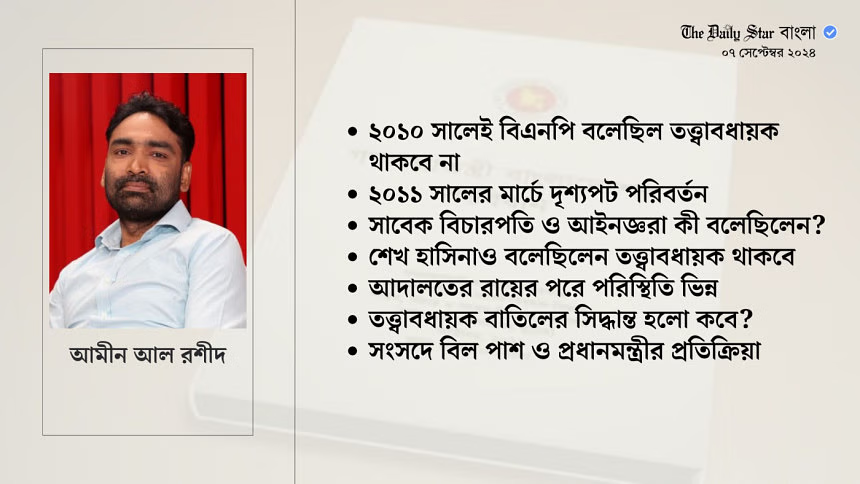Foreign debt repayment pressure mounts
Thirteen years ago, in the fiscal FY10, the total debt repayment amounted to only $876 million, with $686 million in principal repayment and $190 million for interest.

With the expiry of grace periods for some mega projects such as the Padma Bridge rail and Bangabandhu Tunnel, Bangladesh is facing increasing pressure to service its debt comprising principal and interest amounts.
The impending inclusion of the Rooppur Nuclear Power Plant in this list in 2026 is expected to significantly heighten the burden of loan repayment, as per estimates from the Economic Relations Division (ERD).
According to ERD data, this fiscal year marks a record, with the principal loan repayment surpassing $2 billion for the first time in the country’s history. Projections indicate that this figure will escalate to $2.9 billion and $3.31 billion in the next two fiscal years. In the previous fiscal year, Bangladesh paid $1.73 billion in principal payments for foreign loans.
Thirteen years ago, in the fiscal FY10, the total debt repayment amounted to only $876 million, with $686 million in principal repayment and $190 million for interest.
As the government started to take up and implement more and more billion-dollar mega projects, the foreign debt service burden is now set to increase by $1.19 billion in the current fiscal year, considering interest payments, followed by $1.31 billion and $1.41 billion in the subsequent two fiscal years.
Economists caution that the sustainability of these substantial loans hinges on Bangladesh’s ability to leverage the advantages of these large-scale projects and simultaneously enhance exports and domestic productivity.
For instance, Zahid Hussain, former lead economist at the World Bank’s Dhaka office, emphasises that if Bangladesh cannot reduce its reliance on fuel oil imports following the launch of the Rooppur Nuclear Power Plant, the burden of repaying this loan will become substantial. Similarly, the success of the Bangabandhu Tunnel project’s loan repayment depends on Bangladesh’s ability to establish proposed economic zones around the tunnel and attract foreign investments.
Dr Mainul Islam, former professor of economics at Chittagong University, said the government’s current focus on mega projects is expected to increase this pressure, as these projects are unlikely to generate significant returns. The country could face a significant financial burden as it begins to repay the principal on these loans.
Financial experts warn that the deficit in the financial account that emerged last year could hinder future efforts to repay principal amounts and generate surpluses. As the grace periods for large loans expire one after another, the principal payments in the financial account are expected to rise steadily.

Tackling the rising principal payment pressure will require the government to prioritise increasing the release of funds for foreign loan repayments. However, achieving this increase will pose a significant challenge in the coming years, they say.
According to sources, the release of funds for foreign loan repayments has already declined in the last financial year compared to the previous year.
In FY2021-22, $10 billion was released for foreign loan repayments, a figure that decreased to $9.26 billion in FY2022-23.
Principal repayment to get higher
Bangladesh secured a $2.667 billion loan from China for the Padma Rail Link project on 17 April 2018. The five-year grace period for this loan expired last April, necessitating the start of the repayment of principal instalments in the current financial year. Bangladesh has 15 years to repay this loan.
Bangladesh will begin principal repayments for the $11.38 billion Rooppur Nuclear Power Plant loan in 2027. These repayments are expected to exceed $500 million annually over a 20-year term.
Coinciding with the Rooppur loan repayments, the first phase of the metro rail project loan will also enter its repayment phase. This will result in additional principal payments of around $4.5 billion to $5 billion annually.
Consequently, there will be a significant increase in actual loan repayments from FY 2025-26 to FY2026-27.
Budget support loans to increase pressure
To handle the economic impacts of the Covid-19 pandemic and the Russia-Ukraine war, the government has sought budget support from international lenders. Since the start of the pandemic, Bangladesh has received $6.46 billion in budget support, according to ERD data. Some of these loans have a three-year grace period, followed by a 12-year repayment term.
The grace period has already expired for some of these budget support loans. This includes the two $250 million loans from the Asian Infrastructure Investment Bank (AIIB) and the Asian Development Bank (ADB), whose grace periods ended in May last year.
Furthermore, the grace period for another $250 million in budget assistance is set to expire next June. Negotiations are currently underway for an additional $1.05 billion in budget assistance from various development agencies for the current fiscal year.
As a result, the budget support is expected to put pressure on debt repayment over the next two to three years, according to people concerned.
Large loans that are about to begin principal payments
The government secured a $1.4 billion loan from China on 4 July 2019 for the Expansion and Strengthening of Power System Network under DPDC project. The grace period for this loan will expire next June. The loan has a repayment period of 15 years.
Additionally, loan repayments for the Bangabandhu Tunnel project commenced even before the tunnel’s official opening. The grace period for the project’s $405 million loan has ended, and principal payments began in the last financial year.
The grace period for the $450 million ADB loan granted for the Rupsha 800MW Combined Cycle Power Plant project expired last August. This development was accompanied by the expiration of grace periods for several other large-scale ADB loans, including a $275 million loan for the Railway Rolling Stock Operations Improvement project, a $225 million loan for the Secondary Education Sector Investment Programme (Sesip) Tranche-III project, a $351 million loan for the Southwest Transmission Grid Expansion project, and a $500 million loan for the Fourth Primary Education Development Programme.





